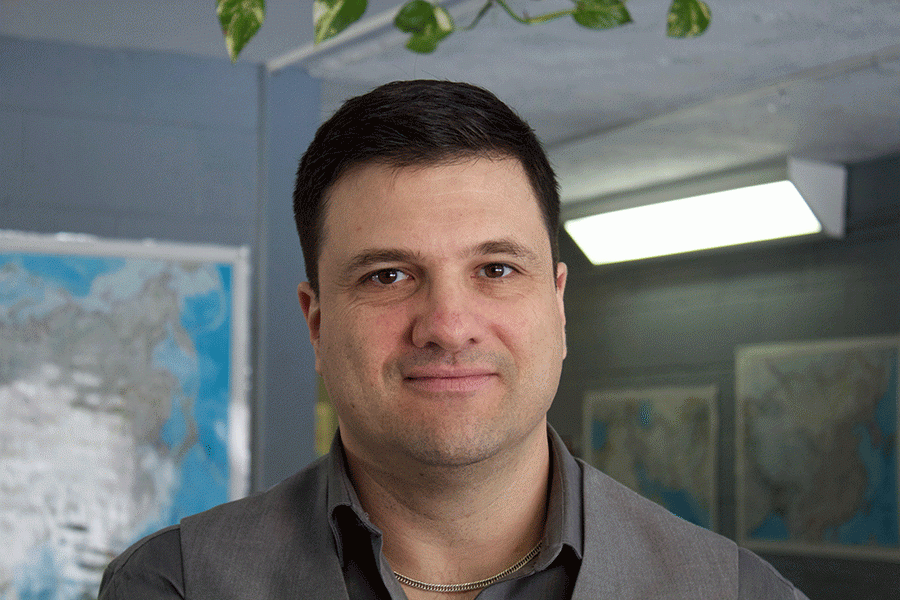Business department trip to India set for May
Henrique Cazar
Business Practice and Civic Engagement (BUS-3125-J01) is set for its launch in spring of 2017. The class will culminate in a trip to India a day after commencement on May 19 through May 30 and fulfills students’ civic perspectives credits for their general education requirement.
Students will be traveling to the oceanside city of Trivandrum, short for Thiruvananthapuram, the capital of the southern Indian state of Kerala. The city is home to the world’s richest temple, the Padmanabhaswamy Temple.
The trip, led by Associate Professor of Business and Economics Henrique Cezar, will have three meetings prior to takeoff to discuss India’s culture and economics and to connect with a representative from the Fuller Center so that students can ask questions about their work.
For the fourth time, JSC’s Business and Economics Department will collaborate with the Fuller Center for Housing, a nonprofit, ecumenical Christian housing ministry, to help build affordable housing in a low-income community.
When reflecting on previous international trips, Cezar finds the connection that students make with the natives of countries like Thailand, Nicaragua and Armenia a gratifying aspect of class trips. “The greatest part of those trips is to see how our students engage with the local communities, it’s actually very rewarding to see that,” he said.
From May 15 through May 28 of 2017, Cezar led a trip to Yerevan, Armenia, where JSC students helped assemble to partially constructed houses in a poor community and toured the city on their off days. By the end of the trip, when the house was built, the business professor said his students prepared a ten-minute Armenian folkloric dance for the families of the house.
“In the U.S. you don’t see it that much, but in other countries, when a foreigner arrives and speaks the language that you speak and does something your country does, those people get so happy with them and feel so important,” said Cezar.
“There’s…a bond that is established right away,” he said. “So I remember after the dance that students did, you could see in the eyes of those [Armenians], they were like, ‘Oh my God, those American people are dancing for us!’ That type of comment. It was just shocking for some of them and it was beautiful to see how those people reacted.”
Aside from the change in location, the course material will remain the same from previous international trips, according to Cezar. While focusing on civic engagement, the course aims to “incorporate and extend” students’ previous “knowledge, skills and values” they have learned in their college careers, according to the course description.
For JSC senior Rebecca Bingham, who has done previous service trips through the college’s Badger Alternative Breaks program, next May’s trip to India is a chance to learn about an entirely new culture from that of Vermont.
“I would like to learn as much as I can about the lower income families and how it may differ from a low-income family here in the US,” said Bingham. “I would also like to learn about their culture to prepare myself for the trip. I feel it is very important, to have quality service, to educate yourself on the place you are going to and making sure you are doing good service.”
Shannon McDuff, also a JSC senior and BAB participant, said she enjoyed her time in Armenia and looks forward to gaining a similar level of comfort in India’s cultures.
“I think what I’m interested in is learning a little bit about the local culture because when you go to a country,” said McDuff, “you can go to a million museums and do a bunch of stuff, but it’s really what sticks with you that’s important. I remember the small things in Armenia that I learned [are what stuck]. Things like the little customs when we were eating out with people, or little dances or things they would say. I’m really hoping to learn similar things like little bits of their culture that I can take back with me.”
Cezar, who was born in Brazil, has traveled everywhere from Thailand to Iran and expects his students to have some misconceptions prior to their excursion.
“I always ask, ‘What do you expect and what have you heard about this country? Be very frank,’” said Cezar. “So I’m expecting them to say that India is a dirty place, you know, people are dirty. They have all these images and when they go there, they’ll see that it it’s not exactly as they imagine.”
As of 2011, approximately 21.9 percent (276.6 million) of India’s 1-billion-plus population remained impoverished according to an October 2017 Poverty Brief on India made by The World Bank. Today, Cezar notes that India’s economy, while not poverty-free, has experienced an economic uptick in recent years. 18 percent (approximately 200 million) of India’s population are “rich or millionaires” according to Cezar.
Cezar said there is a “99 percent chance” that his class will run on May 19, though, he hopes to add several more students with six spots remaining.
The reason an international trip to India is important for students is simple, said Cezar: it brings about change – both within them and around them.
“[Students] become more approachable when they are out of Johnson,” Cezar said. “That’s something that I really like every time I do those trips. But more than that, it’s to expose our students – especially Vermonters – to some kind of diversity, some kind of difference. Because we don’t have much, especially in this college. So those trips are an opportunity to expose students to diversity and different cultures.”
At the cost of $2,850, the all-expenses-included trip is currently open for in-person registration with Cezar. A sign-up sheet is available in the Business and Economics Department in Martinetti.




